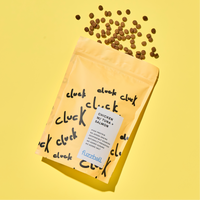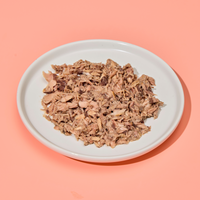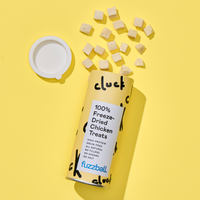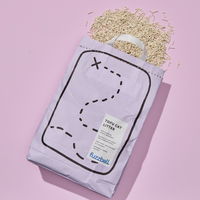Homemade vs. Professionally Formulated: Why Formulated Cat Food Still Wins

One of the most significant duties of a pet owner is feeding a cat. A common question is whether cooking at home is preferable to buying store-bought packaged goods. Homemade meals may initially appear healthier because they are fresh, under control and can be lovingly prepared. But professionally prepared food always wins out when it comes to satisfying the unique nutritional requirements of cats.
Understanding the Unique Needs of Cats
In terms of diet, cats differ from both humans and even dogs. As obligate carnivores, their bodies have evolved to meet specific needs. Providing a range of household foods is insufficient to meet these needs.
These needs are taken into consideration when creating professional cat food. To make sure that commercial formulas promote growth, energy and long-term wellbeing, teams of veterinarians, nutritionists and food scientists thoroughly research feline health. Even with the best of intentions, homemade food rarely reaches this level of accuracy.
The Challenge of Balance at Home
It may seem easy to prepare meals for a cat, but it's much harder to achieve the proper nutrient balance at home than it seems. For optimal health, cats require the proper ratios of proteins, fats, vitamins and other nutrients.
Most pet owners find it difficult to maintain that balance on a regular basis, despite research. Small mistakes can result in excesses or deficiencies that may not be noticeable right away but can eventually have an impact on a cat's health. In contrast, commercially prepared foods undergo testing and regulation to ensure that each serving provides a complete and balanced diet.
Why Does Formulated Cat Food Win?
Feeding a cat is an investment in their long-term health and well-being, not just a way to fill a bowl. Although there is an emotional appeal to the thought of cooking meals at home, it is very challenging to satisfy cats' specific nutritional requirements without the knowledge, testing and regulations that go into commercial foods.
Diets that have been carefully planned offer consistency, security and comfort, guaranteeing that every meal promotes a happy, active and healthy lifestyle. For the majority of pet owners, professionally formulated food is not only the sensible option, but also the dependable one that will keep feline friends healthy for many years to come.

Precision in Formulated Diets
The degree of accuracy with which pet food is formulated is one of the primary reasons it performs better than food you make at home. Every batch is meticulously measured and modified to satisfy predetermined dietary requirements. The process incorporates quality checks, which lowers the possibility of imbalance.
This entails providing a cat with steady nutrition from meal to meal. On the other hand, even the most meticulous homemade plan may change based on what is available in the market, how it is made, or how much of each ingredient is used. Dietary gaps are more likely as a result of this variability.
Convenience and Peace of Mind
Convenience is a useful benefit of purchasing cat food that goes beyond nutritional accuracy. Due to their hectic schedules, the majority of pet owners are unable to dedicate hours to meal preparation, research and planning.
The guesswork is removed with bought options. Each can, pouch, or bag is made to provide a balanced meal without requiring extra adjustments or supplements. Knowing that their pet is receiving the nutrition they require without the possibility of errors brings owners peace of mind.
Safety and Hygiene Standards
Safety should also be taken into account. Strict guidelines govern the production of commercial cat food, which includes hygienic and quality testing. To reduce contamination and preserve uniformity, facilities adhere to strict standards.
It is challenging to keep the same degree of control at home. Risks may be introduced by handling procedures, storage techniques and preparation methods, particularly if meals are prepared ahead of time or stored incorrectly. Even with the best of intentions, these hazards can eventually jeopardise a cat's health.
The Hidden Costs of Homemade
Homemade food is often thought to be less expensive. For a single meal, that might be the case, but the long-term picture is frequently different. Homemade feeding can be more costly due to the requirement for specific supplements, better raw materials and frequent adjustments.
Additionally, veterinary expenses might exceed any savings if imbalances arise and result in health problems. Even though professionally prepared food can occasionally be more expensive up front, it is frequently more cost-effective when taking into account the stability and long-term health it offers.
Adaptability to Life Stages
Depending on their stage of life, cats have different nutritional needs. For growth, upkeep, or healthy ageing, kittens, adults and senior cats all need varying amounts of assistance. These differences are taken into consideration when professionally formulating pet foods, which provide tailored choices for every stage.
Even the most committed owner finds it difficult to replicate this at home since it necessitates frequent modifications to recipes, amounts and proportions. The flexibility of formulated diets is inherent, guaranteeing that the cat's evolving requirements are satisfied without the possibility of neglect.
Tailored Formulas for Specific Needs
Some cats have particular health needs that go beyond typical life stages, whether they have to do with activity level, body weight, or sensitivities. Specialised formulas created to meet these requirements under the direction of veterinary science cannot be replicated with homemade recipes.
Rarely does homemade feeding attain the same level of accuracy. Owners may try to modify recipes, but it is challenging to offer focused support without running the risk of imbalance due to a lack of laboratory testing and professional formulation.
Tradition vs. Science
A desire to go back to something more "natural" is frequently the driving force behind the idea of homemade feeding. Although this sentiment makes sense, it ignores how scientific advancements have influenced contemporary pet nutrition. We now have important knowledge about what cats actually need thanks to decades of research.
This research, which combines the most recent findings in feline health, directly led to professionally formulated foods. Selecting them is about embracing the science that contributes to pets living longer, healthier lives, not about rejecting tradition.

Why Store-Bought Still Wins
Homemade meals may seem more intimate and considerate, but they are not as reliable as planned diets when balance, safety, convenience and flexibility are taken into consideration.
- Consistency in fulfilling daily nutritional requirements is one advantage of store-bought cat food.
- Enforced stringent production standards to regulate safety.
- Owner convenience without compromising health.
- Flexibility in response to unique needs and life stages.
These factors make professionally prepared food the superior option for guaranteeing cats get all they require to flourish.






